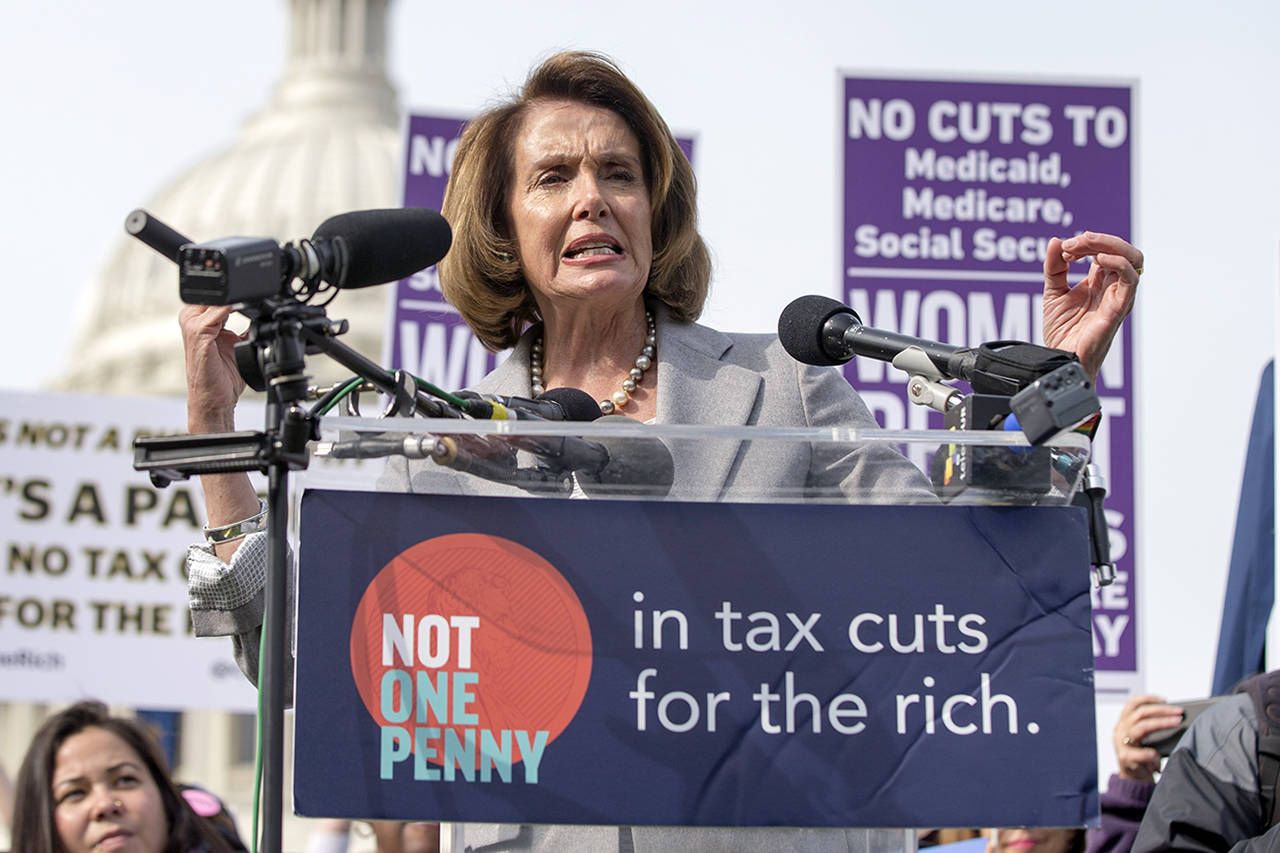WASHINGTON — Democrats decided 16 months before the 2018 election how they would start winning races again. Gathered in a small Virginia town on a sweltering July day, Chuck Schumer, Nancy Pelosi and their lieutenants laid out a “Better Deal” agenda focused on middle-class jobs and higher wages — a vow, they said, that their party would never again waver from a laserlike focus on the economy.
Just days later, President Donald Trump declared that transgender men and women were banned from the military. His action drew a swift rebuke from Democrats, who rose in unison to denounce the president over the newest front in a cultural — not economic — fight.
The pattern repeated through the summer and into the fall. Whether it was his response to the Charlottesville white nationalist march or his condemnation of NFL players who knelt during the anthem to protest police brutality, Trump forced Democrats onto the battlefield of his choosing.
And if he keeps doing it now that the one-year countdown to Election Day 2018 has begun, it could very well mean Democrats are denied the chance to win back majorities in the House or hold onto their numbers in the Senate.
“As much as I’m appalled by the daily actions from the Oval Office, I have to admire the president’s ability to keep us talking about anything other than jobs and economic well-being,” said Democratic Rep. Jim Himes of Connecticut. “If we keep falling for that, we will pay a huge political cost.”
In an election cycle that many Democrats regard as pivotal, how the party handles Trump’s ceaseless culture-war provocations might be its toughest challenge. Especially in districts heavy with white working-class voters, party leaders believe fixating on an economic message is the only way to assemble a winning coalition.
Party leaders — cognizant they need to gain 24 seats — now say Democrats could win the House in 2018, a goal considered farfetched just nine months ago. And whereas Democratic strategists once feared deep losses among their 48-member caucus in the Senate, they now think they have a chance for a net gain.
“We are focused like a laser beam on growing the economy and doing it in a way that creates more shared prosperity,” said Sen. Chris Van Hollen, chairman of the Democratic Senatorial Campaign Committee, the Senate Democrats’ political arm. “Every American household can benefit from economic growth.”


